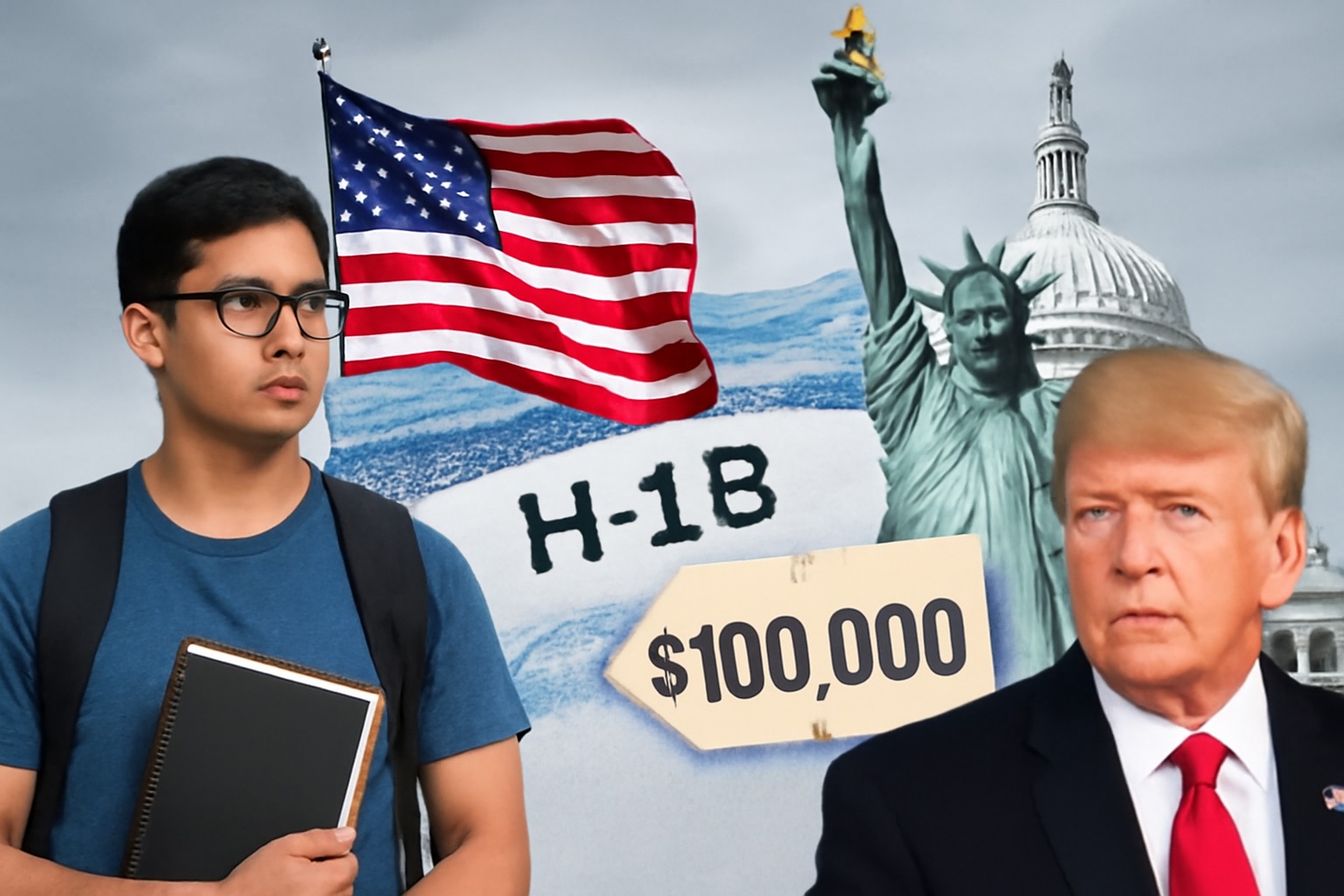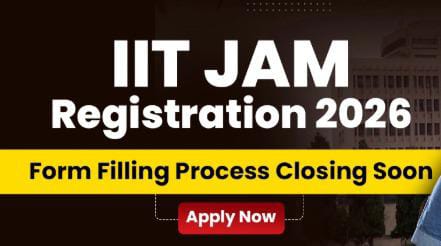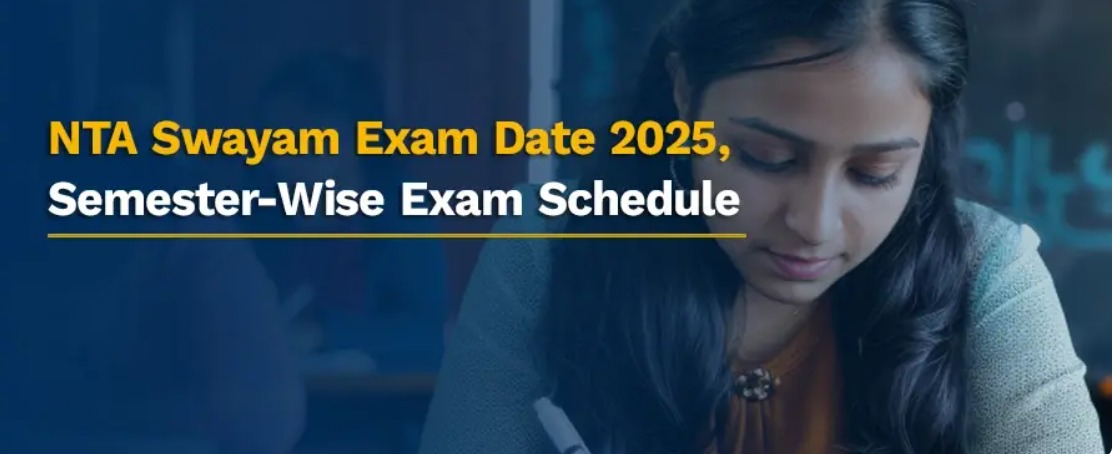
India has long been one of the largest contributors to the pool of international students in the United States, particularly those pursuing higher education in STEM (Science, Technology, Engineering, and Mathematics) fields. Many of these students go on to apply for H-1B visas, which allow them to work in the U.S. after graduation. The H-1B visa is often a lifeline for these students, enabling them to build their careers, pay off student loans, and eventually gain permanent residency. However, former U.S. President Donald Trump's decision to raise the fees for the H-1B visa by as much as $100,000 has had significant consequences for Indian students. For more details on the impacts of these changes. In this blog, we will explore the effects of these hikes, India’s reaction, and why the U.S. might lose more than India as a result of this policy change.
Why the H-1B Visa Matters to Indian Students
The H-1B visa has been crucial for Indian students pursuing higher education in the U.S., especially in fields like technology, engineering, and healthcare. This visa allows them to stay in the U.S. and work for up to six years, providing an opportunity to gain valuable international work experience.
Indian students are the largest group of H-1B visa recipients, accounting for about 71% of the approved visas in 2024. The H-1B visa is not just a job permit, but also a stepping stone to permanent residency in the U.S. Through this visa, many Indian professionals are able to contribute to the American economy, particularly in tech, research, and other high-demand sectors.
For these students, the H-1B visa is often the key to making their education in the U.S. financially worthwhile. Without the opportunity to work and pay off hefty student loans, the cost of studying in the U.S. can become overwhelming.
The Impact of the $100,000 H-1B Visa Fee Increase
In an effort to tighten immigration policies, the Trump administration introduced a policy that significantly raised the application fees for H-1B visas. These hikes have increased the financial burden on both companies that sponsor H-1B applicants and students who hope to secure such sponsorship.
Here’s a breakdown of the major consequences:
1. Increased Financial Burden on Companies and Students
Before the fee hike, employers typically covered most of the application costs. However, with the new fee structure, these costs have risen dramatically. This means that companies are less willing to sponsor foreign workers unless absolutely necessary. For Indian students, this has made securing a job that sponsors the H-1B visa much harder.
The increase has resulted in more companies opting to hire U.S. workers rather than going through the expense and paperwork of sponsoring foreign workers. For students who were relying on this pathway to stay in the U.S. after graduation, it has made their chances of securing a job with H-1B sponsorship even slimmer.
2. Fewer Job Opportunities for Indian Students
Many companies, particularly small and medium-sized businesses, simply cannot afford to sponsor foreign workers under the new rules. This has led to fewer job opportunities for Indian students, particularly in tech and research fields. Without the H-1B visa, these students are forced to either return to India or look for jobs in countries with less stringent immigration policies, such as Canada or Australia.
3. Emotional and Psychological Impact
Indian students who have moved to the U.S. with hopes of securing a job and a better future are now facing increased uncertainty. Many have taken large loans to fund their education, and without the opportunity to work in the U.S. post-graduation, paying off those loans becomes even more difficult. The visa fee hike adds a layer of stress and anxiety, as students worry about whether they will find an employer willing to sponsor them.
Families back home in India, who have invested significant resources into sending their children abroad for higher education, are also feeling the impact. The uncertainty surrounding the availability of H-1B visas makes their investment seem riskier.
India’s Reaction: ‘Afraid of Our Talent’
India has responded strongly to the H-1B visa fee hike. Indian officials have argued that this move is an attempt by the U.S. to limit the flow of talented foreign workers, especially from India. India’s Minister of External Affairs, S. Jaishankar, commented that the U.S. was "afraid of our talent," reflecting the frustration that India feels over the policy changes.
For India, the impact is twofold:
Talent Drain: India has consistently produced top-tier talent in engineering, technology, and healthcare. The U.S. has long benefited from this talent pool, which has contributed significantly to its economy. By increasing the cost of obtaining an H-1B visa, the U.S. risks losing access to this high-skilled workforce, which could ultimately harm its economic growth and technological innovation. To understand more about how these changes affect students and workers.
Reduced Student Mobility: The fee hikes have made the U.S. less attractive to Indian students, who are now exploring other destinations like Canada, Australia, and the U.K. These countries have easier visa policies and offer more affordable pathways for international students to work after graduation.
Why the U.S. Might Lose More Than India
While the new visa fees may appear to benefit the U.S. by reducing the number of foreign workers, the long-term consequences could be much more harmful, especially to American companies and industries that rely on skilled workers. Here’s why:
1. Loss of Skilled Workers
India is one of the largest sources of skilled labor in the U.S. Indian professionals, particularly in the tech industry, have been instrumental in the growth of major American companies, including Google, Microsoft, Intel, and Adobe. These workers bring a wealth of expertise and innovation to the U.S. economy. If the cost of hiring foreign workers becomes too high, American companies may find it more difficult to fill important roles, leading to skill shortages in key sectors.
2. Increased Outsourcing
If the U.S. makes it harder for Indian students and professionals to stay and work in the country, companies may increasingly turn to outsourcing jobs to India instead of hiring local workers. This could mean that the U.S. loses out on the economic benefits of having these skilled professionals within its borders. In the long run, India could benefit from the shifting trends by offering more competitive opportunities for skilled workers and students.
3. Impact on Innovation
The U.S. has long been a global leader in innovation, largely due to the influx of international talent. Indian professionals have played a significant role in driving advancements in technology, research, and healthcare. By making it more difficult for talented individuals to work in the U.S., the country risks stifling its innovation and competitive edge on the global stage.
4. A Shift in Global Talent Attraction
Countries like Canada, Australia, and the U.K. are already benefiting from the U.S.’s stricter visa policies. These nations have more welcoming immigration policies and have started to attract more international students and skilled workers, particularly from India. As the U.S. becomes less appealing to foreign workers, other countries will capitalize on this shift and become new hubs for global talent.
India’s ‘Brain Gain’
Despite the U.S. visa challenges, India may stand to gain in the long run. Many students who once dreamed of building their careers in the U.S. are now returning to India, bringing with them valuable skills and experience gained abroad. India’s tech industry is booming, and there are increasing opportunities for Indian graduates to contribute to the country’s growth.
As Indian students and professionals return home, they are starting businesses, leading innovation in tech, and contributing to India's rising global economic position. This trend is often referred to as a "brain gain" for India, as the country benefits from the knowledge and expertise that returning professionals bring with them.
Conclusion
The H-1B visa fee hike has had significant consequences for Indian students, their families, and the U.S. economy. While the Trump administration’s policies were designed to prioritize American workers and reduce dependence on foreign talent, the long-term impact could be detrimental to both the U.S. and India.
Indian students are now facing increased financial strain and uncertainty about their future in the U.S. At the same time, American companies may struggle to fill essential roles, leading to a potential loss of innovation and growth. While India may benefit from a "brain gain," the U.S. risks losing out on valuable talent that has driven much of its success.
In the end, the U.S. may find that by restricting access to foreign talent, it is not just India that stands to benefit. As global competition for skilled workers grows, both countries will need to reconsider how they value and attract the brightest minds in order to maintain their economic and technological leadership





